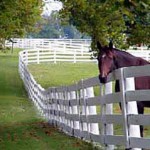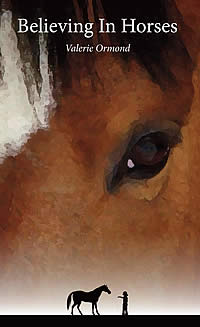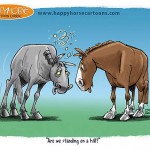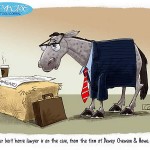“In my experience, horses don’t want anything to do with people.” “All horses want to do is eat all the time.” “There is no way horses can tell what is going on with people.” These are just a few of the criticisms the field of equine therapy has encountered over the years. And these have come, despite the tremendous growth, and recent research supporting the use of horses as a therapeutic modality. However, no new treatment, therapy or method is without its growing pains, and what is unique about equine therapy is that horses are typically outside of the realm of understanding of most people.
Although horses have been a very integral part of our society, and have represented many things to man, the understanding of them has always been a subject of debate. From the early “break the spirit” methods to the now more popular “natural horsemanship” movement, discussing horse training is like discussing politics — everybody has their own opinions.
Yet while this can often lead to festive argument, it does not denote an understanding of the horse. After all, the horse is a herd animal, and our common observation of them does not involve the perspective of their natural environment. As an example, the belief that horses want nothing to do with people, and when placed in a corral with them, prefer to isolate, is not supported by any cases of equine isolation in the wild. Quite the contrary, horses avoid isolating at all costs, and instead it is used as a form of reprimand. Another misunderstanding is that horses — prey animals — have premeditated behavior. Again, horses being ruled primarily through the limbic system are, for the most part, instinctive and reflexive in their actions. They do not “plan” in the sense that we do; instead they react to stimuli in their environment, such as threats of harm, dominant or aggressive behavior from another horse, and maternal instinct.
Continue reading Equine Therapy: A Potful of Projections, by Claire Dorotik, MA





